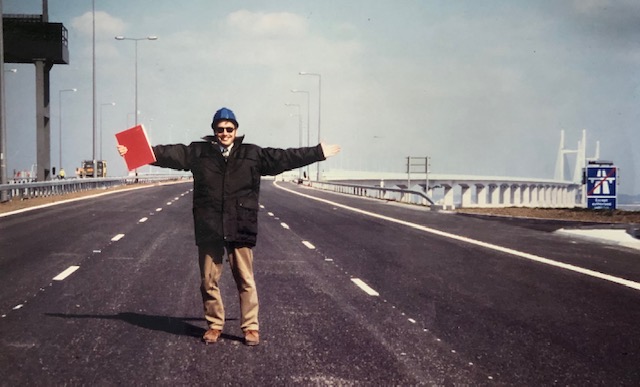- ‘Lies, damned lies etc…’ - 13th February 2026
- Missing in action - 12th February 2026
- Travel news again - 11th February 2026

On The Eye our Editor Phil Parry has described how he was helped to break into the South Wales Echo office car when he was a cub reporter, recalled his early career as a journalist, the importance of experience in the job, and making clear that the ‘calls’ to emergency services as well as court cases are central to any media operation.
He has also explored how poorly paid most journalism is when trainee reporters had to live in squalid flats, the vital role of expenses, and about one of his most important stories on the now-scrapped 53 year-old BBC Wales TV Current Affairs series, Week In Week Out (WIWO), which won an award even after it was axed, long after his career really took off.

Phil has explained too how crucial it is actually to speak to people, the virtue of speed as well as accuracy, why knowledge of ‘history’ is vital, how certain material was removed from TV Current Affairs programmes when secret cameras had to be used, and some of those he has interviewed.
After disclosing why investigative journalism is needed now more than ever although others have different opinions, and how information from trusted sources is crucial at this time of crisis, here he shows that the severity of the lockdown varies according to the country that imposes it.
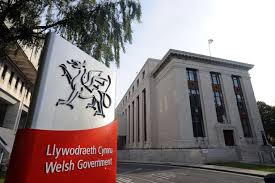
The lockdown appears to be different according to how much voters trust their politicians.
The Welsh Government (WG) has just announced a review of how effective it is and whether measures needed to continue (or if new ones were required).
The latest news about the lockdown is “cautious”, and with a focus on ensuring the ‘R’ rate of transmission is not allowed to rise.
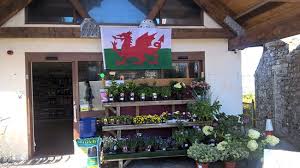
People will be able to exercise outside more than once a day in Wales, with some libraries, recycling centres and garden centres soon to re-open too, according to the First Minister Mark Drakeford.
But he also warned it was “too soon” to make any other changes, and the rest of the coronavirus stay-at-home restrictions will be extended for another three weeks.

WG ministers met twice yesterday to discuss their formal review of the Welsh stay-at-home regulations, which must be completed every three weeks.
The Prime Minister Boris Johnson has informed leaders of the devolved nations that he is committed to a UK-wide approach to tackling coronavirus “even if different parts of the UK begin to move at slightly different speeds”.
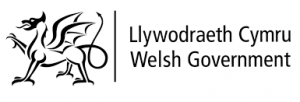
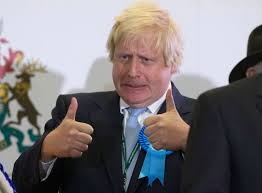
Meanwhile the latest surveys have shown that residents of north-western Europe trust their Governments and fellow citizens quite a lot, while those in southern and eastern Europe do not.
When the World Values Survey (WVS) asked Swedes whether most people can be trusted, more than 60 per cent answered ‘yes’.
In Italy only about 30 per cent did so, and in Romania it was a mere seven per cent.

Another study, the European Social Survey (ESS), asked respondents to rate their trust in politicians on a ten-point scale.
In 2018 the Dutch averaged 5.4, the Poles 3.1 and the French and Germans somewhere in between, while one in eight Bulgarians gave their politicians a zero rating.

Families in Romania endured a brutal Communist dictatorship followed by decades of corruption that left them suspicious of institutions and each other.
Unable to rely on public goodwill, the Government there responded to Covid-19 with a harsh lockdown, declaring a state of emergency even before the country’s first official death, and made written declarations of purpose a requirement of leaving home, while from March 24 to April 19 police issued 200,000 fines (worth about £68 million).

Like Romania, many low-trust eastern European countries also locked down hard and fast.
Serbia, Greece and other Balkan states imposed curfews – Croatia requires a Government-issued pass to travel between towns.
Poland, among the first countries to shut its borders, bars children under 13 from leaving home without an adult, and shoppers must wear disposable gloves, with face-masks required in public.
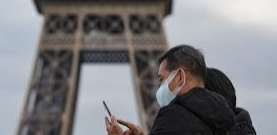
Such quick, tough responses have helped spare eastern Europe the worst of the pandemic. Confirmed death rates in Poland and Romania are less than a tenth those in hard-hit countries such as France, Italy and Spain, and lower testing rates account for only a fraction of the difference.

In France, Italy and Spain, public gatherings and social visits are banned, non-essential enterprises are shut and parks and beaches are closed.
In France outdoor exercise was allowed only within one kilometre of home – in Italy the limit was 200 metres, and Spain banned it altogether at one point.
French police had issued over 400,000 fines for violating confinement rules by April 3, while in Spain the total reached nearly 800,000, with almost 7,000 arrests.
Meanwhile, citizens of Europe’s high-trust countries have had it relatively easy.
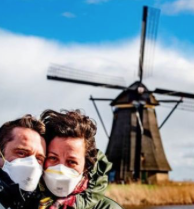
Germany has had little confrontational policing, the Netherlands implemented what it terms an ‘intelligent lockdown’ by closing schools and restaurants, but allowing socialising with up to three visitors. There are no limits on circulating outdoors other than staying 1.5 metres apart, and Mark Rutte, the Prime Minister, has said that people are “treated as adults, not as children”.
As for Sweden, it has no lockdown at all.
The Swedes and Dutch are following Government recommendations: mobility is down by about 40 per cent, according to Google data, but in France and Italy it is down about 80 per cent.
 Worryingly, Dutch and Swedish Covid-19 mortality rates outstrip those in neighbouring countries. The Dutch death rate per head is almost four times that in Germany, and Sweden’s is double that in Denmark, which has a tight lockdown.
Worryingly, Dutch and Swedish Covid-19 mortality rates outstrip those in neighbouring countries. The Dutch death rate per head is almost four times that in Germany, and Sweden’s is double that in Denmark, which has a tight lockdown.
So it is obvious that the orders on how much we can do, and whether they are followed, depend on if we trust our politicians.
Just don’t tell them that…
Phil’s memories of his astonishing 36-year award-winning career in journalism as he was gripped by the incurable disabling condition Hereditary Spastic Paraplegia (HSP), have been released in a major new book ‘A GOOD STORY’. Order the book now!
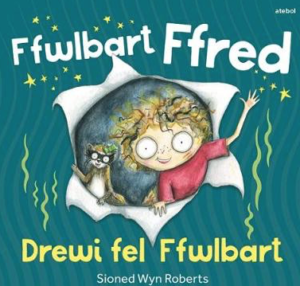
If you need something to keep the children entertained during these uncertain times (in Welsh) try Ffwlbart Ffred about the amusing stories of Ffred and his pet.








